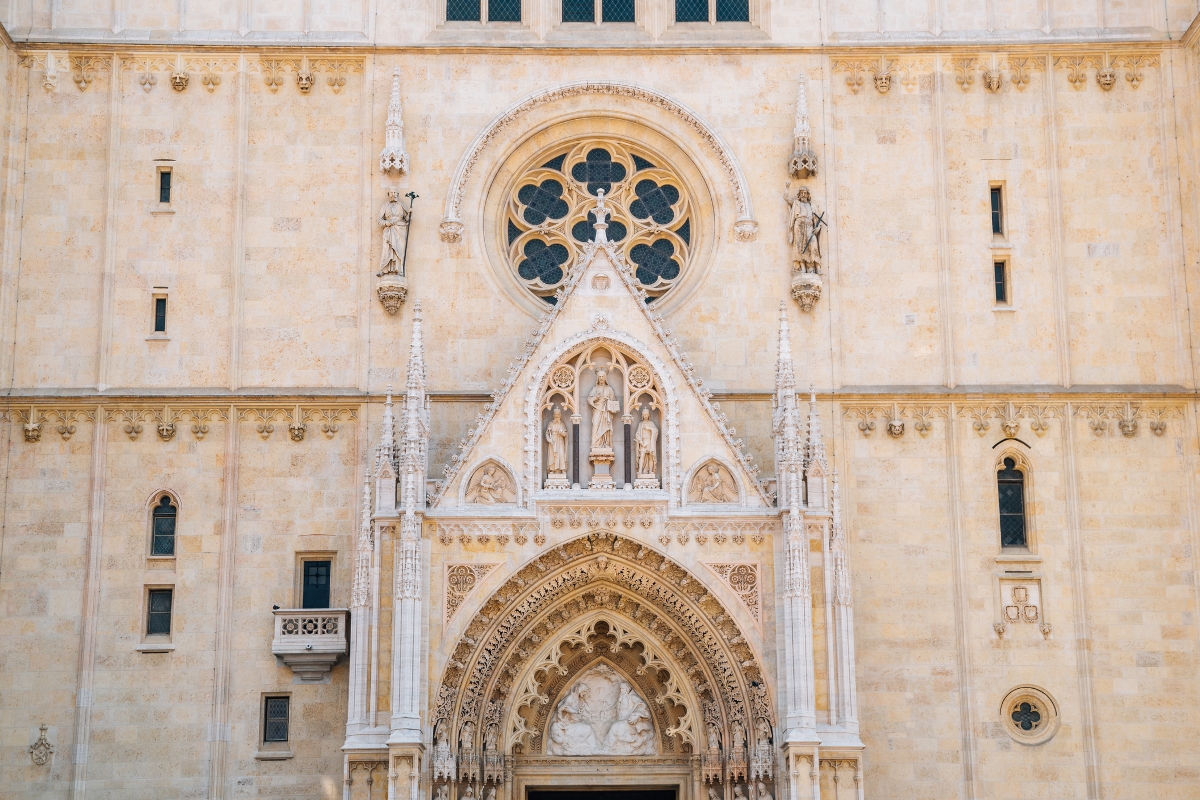
Croatia boasts a history that is as diverse and captivating as its stunning landscapes and vibrant culture. This Mediterranean gem has witnessed the rise and fall of empires, repeated struggles for independence, and the gradual forging of a unique national identity.
In the beginning
Croatia's history dates back as far as the Neolithic period. The region's strategic location on the crossroads of different civilizations made it a melting pot of cultures, each leaving their mark on the land. Before the arrival of the Croats, the region was inhabited by the Illyrians, an ancient Indo-European people with a rich and diverse culture. The Illyrians established numerous tribal communities, and their influence endured in the region for centuries. The Illyrian legacy can still be seen in the toponyms and archaeological remains scattered across modern-day Croatia.
After a brief period of Greek colonization, Croatia's history became intricately intertwined with that of the Roman Empire. The Romans gradually expanded their dominion over Illyricum, the ancient name for the region that includes modern Croatia. By the 1st century BCE, much of Croatia had become part of the Roman province of Dalmatia. Romanization brought with it a flourishing of cities, infrastructure, and a Latinized culture that left an indelible mark on the region.
Martyrs and migrations
Section Type: standardWidthImageS
Diocletian's Palace, located in Split, is an ancient palace built for the Roman emperor Diocletian at the end of the third century AD.

The spread of Christianity in the Roman Empire had a profound impact on Croatia. Early Christian communities emerged in the coastal cities of Salona (modern Solin) and Zadar, where they built churches and developed a Christian identity. The 4th century CE saw the rise of Christian martyrs in the region.
As the Western Roman Empire faced challenges and eventual decline, waves of migration and invasions swept through the Balkans. This period witnessed the arrival of various Germanic and Slavic tribes, further contributing to the ethnic mosaic of Croatia. The Slavic migrations, in particular, played a pivotal role in shaping the Croatian people and language, as Slavic tribes assimilated with the indigenous population.
In the 9th century, Croatia established its first organized state, known as the Principality of Dalmatian Croatia. This early state was influenced by Byzantine and Western European cultures and laid the foundation for the development of a distinctive Croatian identity.
Hungarians, Ottomans, and Habsburgs
The 12th century brought significant changes to Croatia's political landscape as it entered into a union with the Kingdom of Hungary. This union, formalized in the Pacta Conventa of 1102, allowed Croatia to maintain a degree of autonomy while sharing a monarch with Hungary. During this period, Croatian nobility played a crucial role in shaping the country's political and cultural life.
The 15th and 16th centuries marked a turbulent era for Croatia, as it faced the threat of the expanding Ottoman Empire. The Ottoman invasions led to the loss of some Croatian territories, while the Habsburg Monarchy, which ruled over much of Central Europe, extended its influence into Croatia. The Habsburgs would rule over Croatia for centuries, and their legacy can still be seen in the country's architecture, culture, and institutions.
Renaissance and Reformation
Section Type: standardWidthImageS
Illustration of Marko Marulić, 1903.

The Renaissance and Reformation periods had a profound impact on Croatia's cultural and intellectual development. Croatian humanists and writers, such as Marko Marulić, made significant contributions to European literature and thought during this time. The Reformation also found its way into Croatia, leading to religious diversity and debates about faith and authority.
The Napoleonic Era
In the early 19th century, Napoleon's forces swept through Croatia, leading to a period of political upheaval. Croatia became part of the French-administered Illyrian Provinces, which aimed to centralize administration and promote the use of the French language. While short-lived, this period had a lasting impact on Croatian culture, language, and legal systems.
Croatia fights back
The 19th century witnessed the emergence of the Croatian National Revival, a cultural and political movement that aimed to promote Croatian language, culture, and identity. Figures like Ljudevit Gaj played a pivotal role in standardizing the Croatian language and advocating for national rights within the Habsburg Empire.
The Compromise of 1868, also known as the Ausgleich, marked a turning point in Croatia's history. It established the Austro-Hungarian Dual Monarchy, granting Croatia a degree of autonomy within the new state. While this arrangement provided some political stability, it also led to tensions between Croats and Hungarians over issues of cultural and political representation.
The world at war
The aftermath of World War I saw the collapse of the Austro-Hungarian Empire. In 1918, Croatia joined the Kingdom of Serbs, Croats, and Slovenes, which later became Yugoslavia. This multi-ethnic state sought to unite South Slavic peoples but faced numerous ethnic and political challenges. Croatia's autonomy was limited within the kingdom, and tensions simmered beneath the surface.
Section Type: standardWidthImageS
Mass protests in Zagreb against the unification of the State of Serbs, Croats, and Slovenes with the Kingdom of Serbia in 1918.

World War II brought further turmoil to Croatia. Following the Axis invasion of Yugoslavia in 1941, Croatia declared independence under the puppet regime of the Independent State of Croatia, led by Ante Pavelić. This period witnessed significant atrocities, including the persecution of ethnic Serbs and Jews. The end of the war saw Croatia liberated by Yugoslav Partisans, led by Josip Broz Tito.
Tito’s legacy
Croatia remained part of the Socialist Federal Republic of Yugoslavia under Tito's rule after World War II. Under his rule, Yugoslavia embraced "self-management socialism," leading to economic development and industrialization. Croatia played a vital role in these efforts, with its coastal areas developed into tourist destinations. Tito's policies promoted cultural diversity while emphasizing a shared Yugoslav identity. But all was not well beneath the surface.
Section Type: standardWidthImageS
Portrait of Josip Broz Tito taken in 1961.

Tito's foreign policy led Yugoslavia to join the Non-Aligned Movement, maintaining neutrality during the Cold War. His death in 1980 marked a turning point, as ethnic and political tensions resurfaced. Tito's legacy is complex, as he is remembered for stability and development but also for political suppression and for killing an estimated 500,000 “collaborators” during WWII.
Another dark chapter
The late 20th century marked a tumultuous period in Croatia's history. As Yugoslavia disintegrated in the early 1990s, Croatia declared independence in 1991. This move was met with a brutal response from the Yugoslav People's Army, leading to the Croatian War of Independence, a bitter conflict that claimed the lives of at least 40,000 people. After several years of conflict and international involvement, Croatia finally gained its independence in 1995.
Modern Croatia
Section Type: standardWidthImageS
Croatian Parliament building in Zagreb.

Since gaining independence, Croatia has worked to rebuild and develop as a sovereign nation. The country has become a member of the European Union and NATO, signaling its integration into Western institutions. Croatia's tourism industry has flourished, drawing visitors with its stunning coastline, historic cities, and rich cultural heritage.
From its early roots in antiquity to its modern identity as a European nation, Croatia's journey has been marked by resilience, innovation, and a fierce determination to preserve its unique heritage.
Section Type: cta
Experience Croatia’s unique identity for yourself with SA Expeditions. We have prepared some sample itineraries, and we have a team of Destination Experts waiting to design you a bespoke Croatian adventure.


Copyright © 2026 SA Luxury Expeditions LLC, All rights reserved | 8 The Green, Suite A, Dover, DE, 19901 | 415-549-8049










